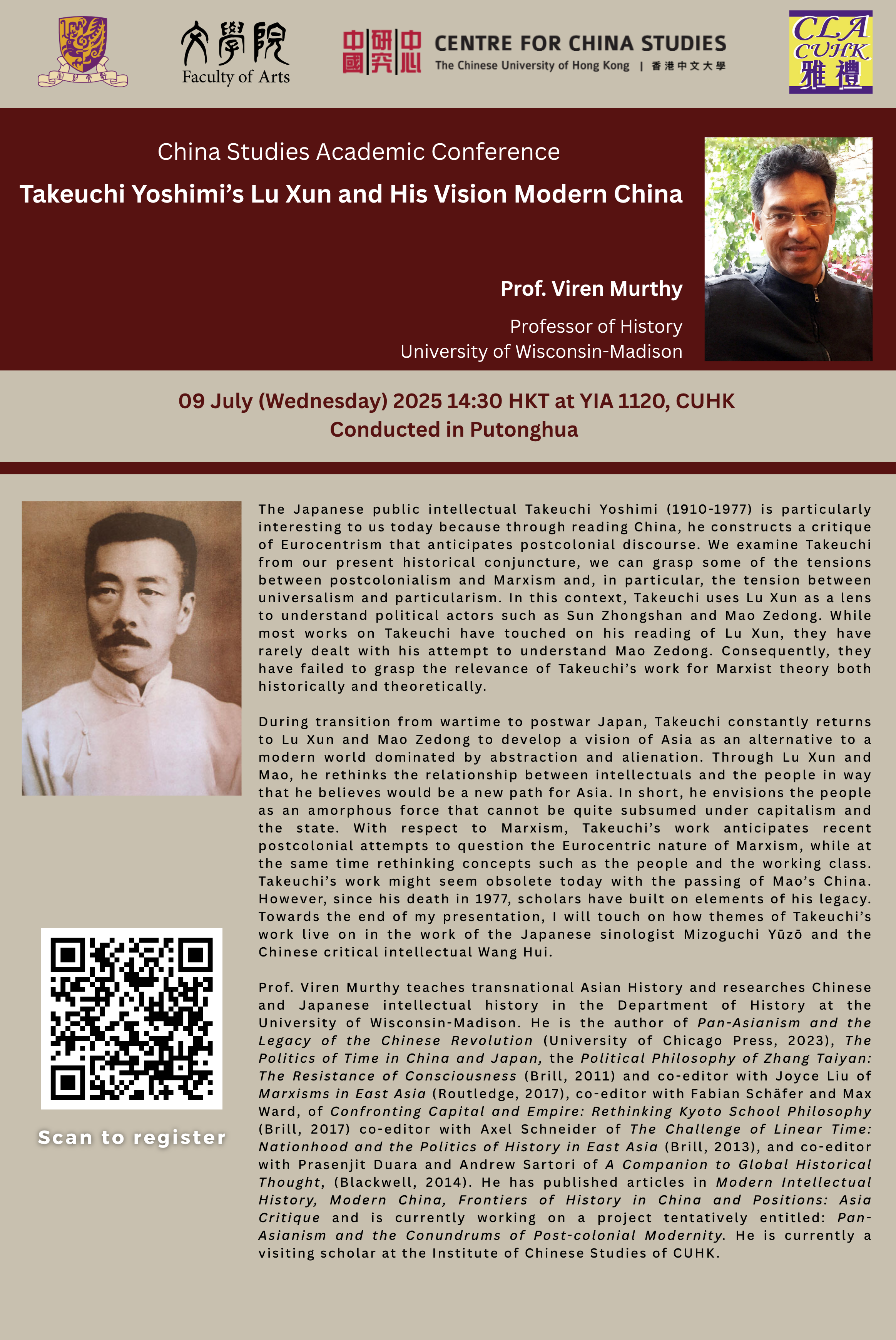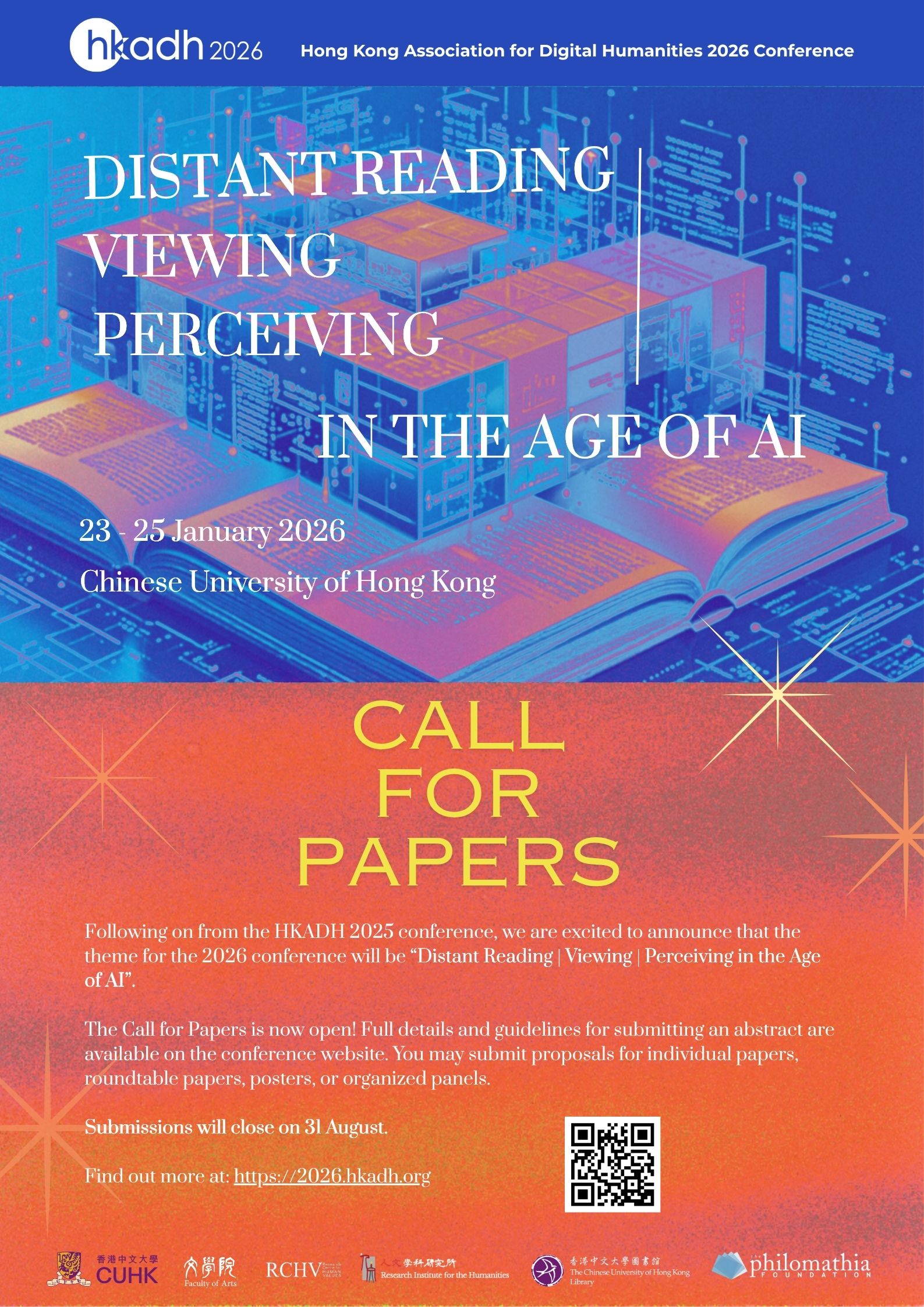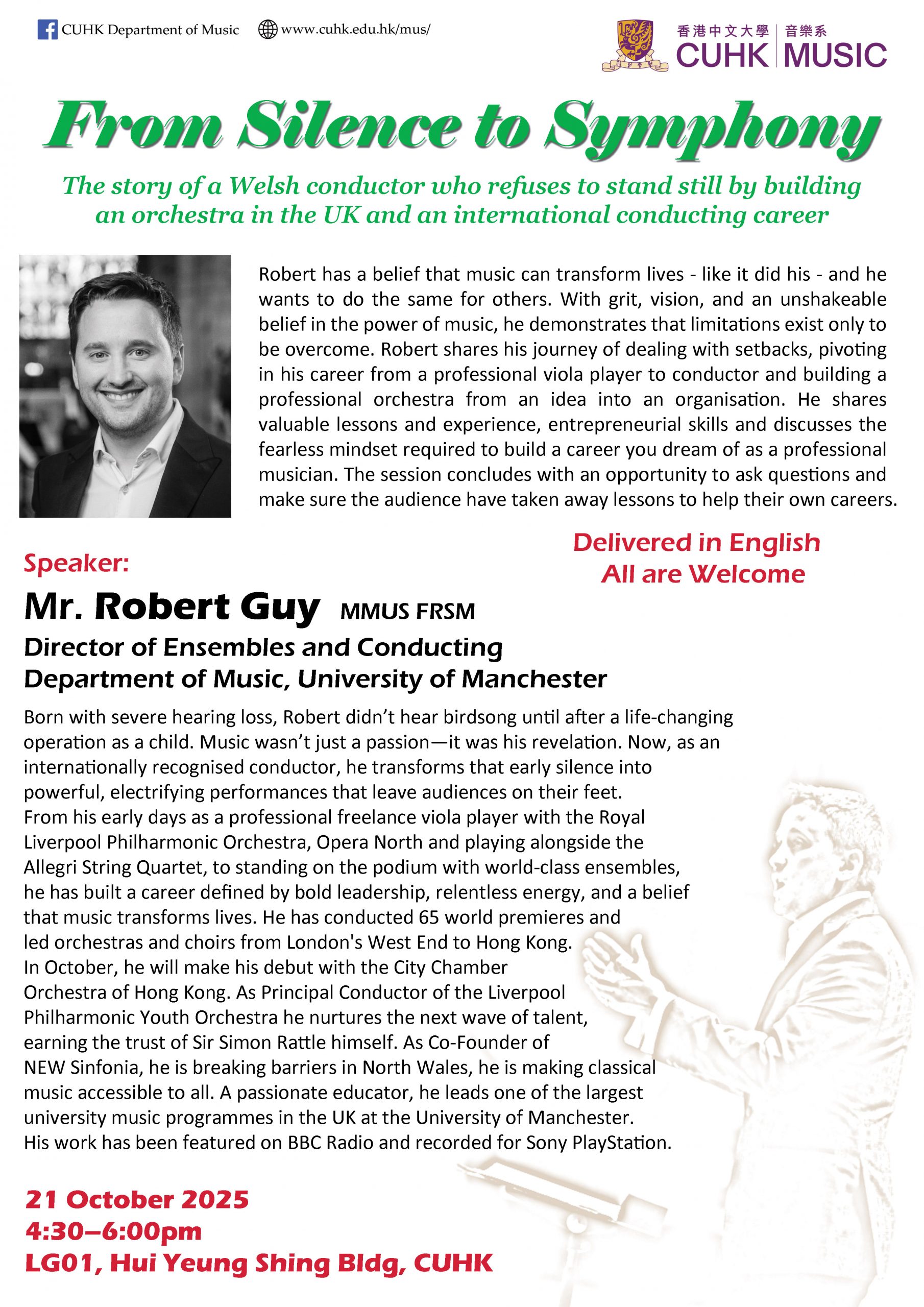
Speaker
Prof. Viren Murthy
Prof. Viren Murthy teaches transnational Asian History and researches Chinese and Japanese intellectual history in the Department of History at the University of Wisconsin-Madison. He is the author of Pan-Asianism and the Legacy of the Chinese Revolution (University of Chicago Press, 2023), The Politics of Time in China and Japan,The Political Philosophy of Zhang Taiyan: The Resistance of Consciousness (Brill, 2011) and co-editor with Joyce Liu of Marxisms in East Asia (Routledge, 2017), co-editor with Fabian Schäfer and Max Ward, of Confronting Capital and Empire: Rethinking Kyoto School Philosophy (Brill, 2017) co-editor with Axel Schneider of The Challenge of Linear Time: Nationhood and the Politics of History in East Asia (Brill, 2013), and co-editor with Prasenjit Duara and Andrew Sartori of A Companion to Global Historical Thought, (Blackwell, 2014). He has published articles in Modern Intellectual History, Modern China, Frontiers of History in China and Positions: Asia Critique and is currently working on a project tentatively entitled: Pan-Asianism and the Conundrums of Post-colonial Modernity. He is currently an Visiting Scholar at the Institute of Chinese Studies of CUHK.
Event Details
The Japanese public intellectual Takeuchi Yoshimi (1910-1977) is particularly interesting to us today because through reading China, he constructs a critique of Eurocentrism that anticipates postcolonial discourse. We examine Takeuchi from our present historical conjuncture, we can grasp some of the tensions between postcolonialism and Marxism and, in particular, the tension between universalism and particularism. In this context, Takeuchi uses Lu Xun as a lens to understand political actors such as Sun Zhongshan and Mao Zedong. While most works on Takeuchi have touched on his reading of Lu Xun, they have rarely dealt with his attempt to understand Mao Zedong. Consequently, they have failed to grasp the relevance of Takeuchi’s work for Marxist theory both historically and theoretically.
During transition from wartime to postwar Japan, Takeuchi constantly returns to Lu Xun and Mao Zedong to develop a vision of Asia as an alternative to a modern world dominated by abstraction and alienation. Through Lu Xun and Mao, he rethinks the relationship between intellectuals and the people in way that he believes would be a new path for Asia. In short, he envisions the people as an amorphous force that cannot be quite subsumed under capitalism and the state. With respect to Marxism, Takeuchi’s work anticipates recent postcolonial attempts to question the Eurocentric nature of Marxism, while at the same time rethinking concepts such as the people and the working class. Takeuchi’s work might seem obsolete today with the passing of Mao’s China. However, since his death in 1977, scholars have built on elements of his legacy. Towards the end of my presentation, I will touch on how themes of Takeuchi’s work live on in the work of the Japanese sinologist Mizoguchi Yūzō and the Chinese critical intellectual Wang Hui.
Enquires
Centre for China Studies:
ccs@cuhk.edu.hk/ 3943-4392





